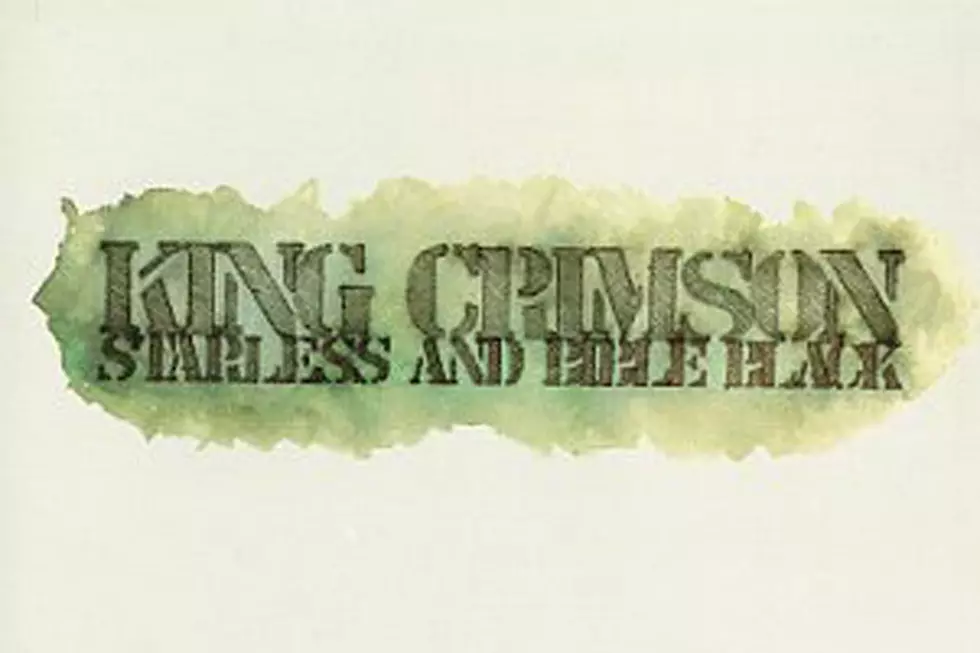
Why King Crimson’s ‘Starless and Bible Black’ Led to More Changes
Possibly the only thing more challenging, unpredictable and even befuddling than King Crimson’s otherworldly musical creations at the start of the '70s was their ever-shifting personnel. By the end of the band's first half-decade of existence, leader Robert Fripp had already gone through several lineups.
But King Crimson’s sixth album Starless and Bible Black arrived on March 29, 1974, during a period of relative stability. Fripp was again surrounded by bassist/vocalist John Wetton, drummer Bill Bruford and multi-instrumentalist (violin, viola, keyboards) David Cross from 1973's Larks' Tongues in Aspic. Also back was lyricist Richard Palmer-James, whose unorthodox wordplay capably filled the role vacated by Fripp’s longtime foil, Peter Sinfield.
Musically, though, King Crimson’s restless experimenting continued thanks to a renewed focus on improvisation that saw all but two of the new album’s songs recorded live in concert, then overdubbed and cleansed of crowd noise in the studio. Both of those studio-only creations kicked off Starless and Bible Black, whose title was an allusion to Dylan Thomas' "Under Milk Wood."
The first melded skittish tempos and drastic soft/hard dynamics with a beautifully ethereal interlude lasting mere seconds. The second, by comparison, opened gently and plainly with sweetening from Cross’ violin – but soon embarked towards darker realms on an ominous Wetton bass line.
Wetton’s instrument also starred alongside subversive guitar interjections across the understated "We’ll Let You Know," which then gave way to lusher, almost Spanish-flavored chords on "The Night Watch"; a minimalist, virtually percussion-free instrumental (one of many) in "Trio"; and finally static-encrusted lounge jazz for "The Mincer." And that was just Side 1.
Listen to King Crimson Perform 'The Night Watch'
The second half of Starless and Bible Black bowed under the daunting weight of two epic instrumentals averaging 10 minutes – edited down from their concert originals – of wanton improvisation. The title track slowly gained intensity around Fripp’s distorted, dive-bombing guitar strangling until finally locking into a steady groove five minutes in, and then gradually decomposing again.
By Fripp’s own admission, "Fracture" challenged even his abilities with its complexity, and yet, the tight interplay between all involved throughout the song’s protracted ebb and flow is on display.
Unfortunately, this quasi-telepathic musical synchronization was already being undermined by a new occurrence of lineup uncertainty — namely involving Cross, whose violin was losing the battle for expression and sheer volume vs. his more assertive bandmates. This, in the kill-or-be-killed world of King Crimson, meant his inevitable ousting (by unanimous vote, no less) prior to their next LP.
The excellent Red would signal yet another complete band collapse, this time followed by a five-year hiatus.
Top 50 Progressive Rock Artists
More From Ultimate Classic Rock









